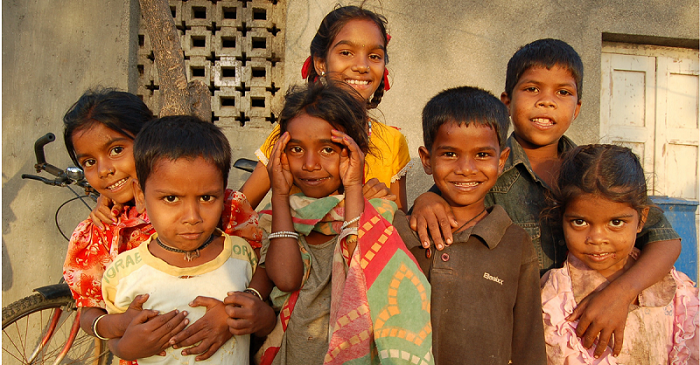By Dr. Gyan Pathak
Children of Tamil Nadu are caught in the political crossfire between PM Narendra Modi led NDA government at the Centre and CM M K Stalin led INDIA bloc government in the state. Centre insists on implementation of the three-language formula under New Education Policy (NEP) 2020, and the State refuses to implement it. It has led to a situation in which children’s fundamental right under Right to Education (RTE) is being violated.
Supreme Court of India had said on May 9, 2025, that Court can’t enforce any state to adopt the NEP. Nevertheless, to enforce implementation of three-language formula, the Centre has frozen release of funds, resulting in delay in Right to Education admissions. Now, Tamil Nadu has moved to Supreme Court against Centre over Rs 2,151 crore education fund freeze.
Tamil Nadu has accused the Union Government of coercive federal over-reach by linking the disbursal of funds to the State’s acceptance of the NEP 2020 and the PM SHRI Schools Scheme. “Such coercive tactics are neither legally permissible nor consistent with State legislation, particularly in light of the two-language formula adopted by the State,” the suit filed by the state read.
Tamil Nadu seeks release of Rs 2151 crore in education funds under the Samagra Shiksha Scheme (SSS) for 2024-25, with 6 per cent interest on the principal amount. Thus the suits total claim is Rs 2291.3 crore.
Tamil Nadu has stated in their petition that the Centre’s withholding of its “obligatory share” under the SSS has crippled the implementation of the Right of Children to Free and Compulsory Education Act, 2009 (RTE Act) and the constitutional rights of over 43.94 lakh students, 2.21 lakh teachers and 32,701 school staff in the state.
Tamil Nadu says that the Project Approval Board (PAB) of the Ministry of Education, Union of India, had approved Rs 3,585.99 crore for the state under the SSS in its February 2024 meeting of which Rs 2,151.59 crore was the Centre’s share based on the 60:40 cost-sharing formula. Nevertheless, Centre has not released even a single instalment. The state alleged that the Centre has done this due to state’s refusal to fully adopt NEP 2020 and sign an MoU for the PM SHRI Schools scheme.
Tamil Nadu has two-language policy – Tamil and English. It has consistently opposed imposition of Hindi since 1968, when a resolution was passed in this regard in the Legislative Assembly of the state. Not only that the Tamil Nadu Tamil Learning Act of 2006 mandates compulsory teaching of Tamil from Class I to X. There is another act called Tamil Nadu Uniform System of School Education Act of 2010.
Nevertheless, these legislations are being undermined by the Centre for imposition of NEP-2020, which is merely a policy and vision statement … that lacks any executive or legislative force binding on the state.
The petition filed by Tamil Nadu says that the Centre has released funds under Samagra Shiksha Scheme to all states except Tamil Nadu, Kerala, and West Bengal.
It was only on May 9, 2025, the Supreme Court of India had declined to entertain a PIL seeking direction to Tamil Nadu, West Bengal and Kerala governments to implement NEP 2020, saying that the court could not compel any state to adopt it. The Supreme Court bench led by Justices J B Pardiwala and R Mahadevan said that they will intervene only if a state’s action or inaction related to NEP 2020 violates any fundamental right. The PIL was filed by a Tamil Nadu based lawyer and BJP leader.
Only a few days ago on May 16, Tamil Nadu government had urged Union government to released the pending dues of Rs 2151.59 crore under the SSS, which included Rs 617 crore for RTE admissions.
AIADMK, which is BJP’s ally in the state, has been criticising the state government for delaying RTE reimbursement funds to private schools for the past two years leading to delayed RTE admissions this academic year.
The state government has also submitted a proposal to the Union Government for 2025-26 during the project approval board meeting, which resulted in a approval by the Centre for an outlay of Rs 2,733.58 crore, in which Centre’s share would be Rs 2151.59 crore. Tamil Nadu has requested the full release of funds for the year 2024-25 along with the release of the first instalment for the current fiscal year 2025-26.
The Madras High Court had directed the Tamil Nadu government on May 15, 2025, to respond with a week to a petition challenging the delay in commencing admissions under the Right of Children to Free and Compulsory Education (RTE) Act, 2009, in private schools.
It should be noted that under the RTE Act 2009, private unaided schools are also required to reserve 25 per cent of entry-level seats for children from economically weaker sections and provide them with free education.
The petition in the Madras High Court was filed by Marumalarchi Makkal Iyakkam president V Eswaran, who said that the RTE admission process typically concludes by May 20 each year. All schools in Tamil Nadu are scheduled for reopening on June 2. However, the Tamil Nadu government has completely neglected its responsibility to ensure the educational rights of lakhs of poor children as mandated by law. No steps have been taken so far regarding the admission process.
Nevertheless, the Minister of School Education Anbil Mahesh Poyyamozhi has said the Centre is yet to decide on release of frozen funds for education to Tamil Nadu. He said, “Centre has to release RTE funds. … Not releasing funds is like acting against human rights.” (IPA Service)

 Supreme Court Corrects A Fatefully Wrong Decision After A Decade’s Delay
Supreme Court Corrects A Fatefully Wrong Decision After A Decade’s Delay 